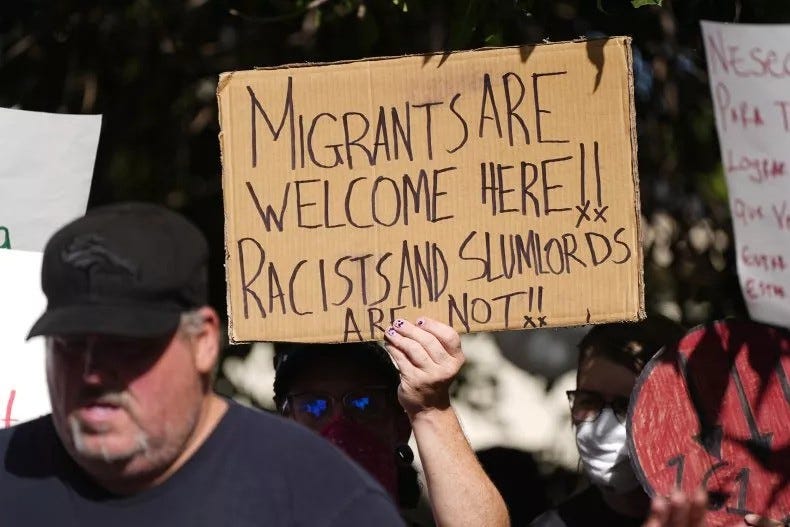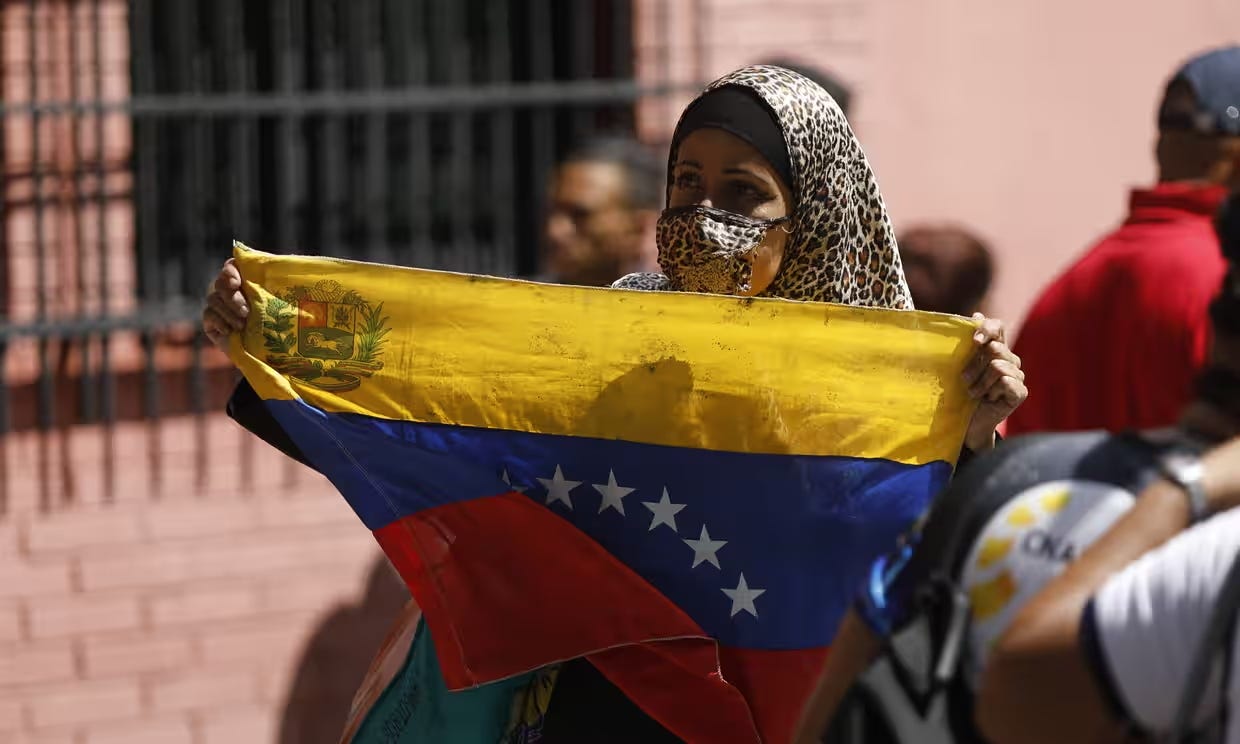From Venezuela to Palestine, US Policy Targets Civilians
Michelle Ellner
Venezuelans are one of the latest groups caught in a relentless cycle. No matter which path they choose, they find themselves unjustly criminalized. At home, they suffer under crushing U.S. sanctions that have decimated their economy. Abroad, those seeking refuge are now being scapegoated, blamed for crime, and used as political chess pieces. This isn’t just unfortunate—it’s intentional. It’s a manufactured crisis designed to distract from the real issue: the United States’ role in driving Venezuela to the brink.
In the U.S., Venezuelan migrants fleeing economic collapse have become targets of a familiar, insidious narrative. They’re portrayed as criminals, used by politicians to stoke fear and division for political points. We’ve seen this before—racism dressed up as concern for public safety.
In places like Aurora, Colorado, Venezuelans are falsely blamed for crimes that never happened. Despite local authorities debunking rumors of Venezuelan “gangs” terrorizing the city, the lies continue to circulate. According to the Associated Press, police data clearly shows there’s no connection between Venezuelan immigrants and crime, yet that hasn’t stopped the fear-mongering.

New York City tells a similar story. Politicians, eager to capitalize on a growing migrant population, push the false narrative that Venezuelans are driving crime rates up. The New York Times revealed NYPD data showing no correlation.
While Venezuelan migrants are demonized in the U.S., those who remain in Venezuela face an equally brutal reality: U.S. sanctions. Sold as a tool to “punish” the Venezuelan government, these illegal measures have been nothing more than collective punishment.
Sanctions have shredded Venezuela’s economy, cutting off 99% of government revenue leading to a collapse of the health and education sectors, as well as hyperinflation. Independent media like Venezuelanalysis as well as think tanks, UN experts, and activists, have long documented the devastating effects of these sanctions. Hyperinflation, extreme poverty, and a humanitarian crisis—these are the real consequences of U.S. policy, felt every day by millions of ordinary Venezuelans. Washington’s so-called “diplomacy” is, in practice, economic warfare. The emphasis on individual sanctions against government officials is merely a red herring to distract from the fact that the real victims are the broader population. These sanctions devastate the economy, restrict access to essential goods, and deepen the suffering of those already struggling to survive.
Venezuelans aren’t criminals—they are survivors of a man-made disaster that the U.S. played a key role in creating. The true criminals are the so-called “diplomats” that have pushed countless people to migrate. The solution is obvious: end the sanctions, support the displaced, and confront the U.S.’s role in this crisis.
The U.S. has a long history of vilifying those fleeing the very crises it helped create. In the 1980s, Salvadorans escaping civil war—a conflict fueled by U.S. intervention—were similarly criminalized upon arrival in the U.S. Back then, as now, the narrative ignored the U.S.’s role in destabilizing their homeland in the first place.
Today, Venezuelans find themselves in the same trap, demonized for seeking safety and survival by both major parties. Republicans continue to echo debunked claims from places like Aurora, Colorado, falsely suggesting that Venezuela is sending its worst criminals, including terrorists, to the U.S. These baseless assertions are a xenophobic distraction. The root cause of migration is U.S. sanctions and foreign policy that have destabilized Venezuela. Democrats, meanwhile, are no better. President Biden has copied Trump’s playbook, completely disregarding the wellbeing of the people of Venezuela by maintaining the same policies that created the crisis in the first place.

Whether in Latin America or the Middle East, U.S. foreign policy too often turns a blind eye to the suffering of ordinary people. In Venezuela, sanctions caused widespread shortages of food and medicine, while in Gaza, U.S. military aid supports airstrikes and blockades that target civilian populations. In Venezuela, organized community groups like the “colectivos” are slandered and criminalized, much like ordinary Palestinians are condemned as terrorists, furthering a narrative of demonization against those fighting for their survival and dignity.
This indifference to innocent civilians in favor of geopolitical interests only fuels never-ending instability, migration crises, and global unrest. Instead of perpetuating policies that punish the most vulnerable, the U.S. should champion diplomacy, mutual respect, and international cooperation. Both Venezuelans and Palestinians deserve to live free from the fear of economic devastation and military violence, and it is time for the U.S. to rethink its role in these injustices.
Tell President Biden: Lift the Venezuela sanctions!
Michelle Ellner is the Latin America campaign coordinator of CODEPINK.




